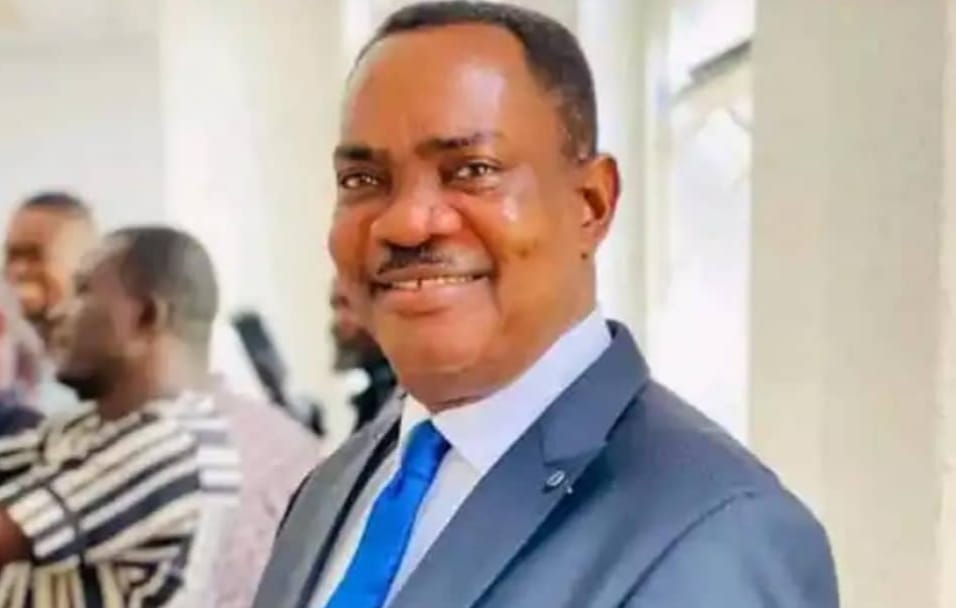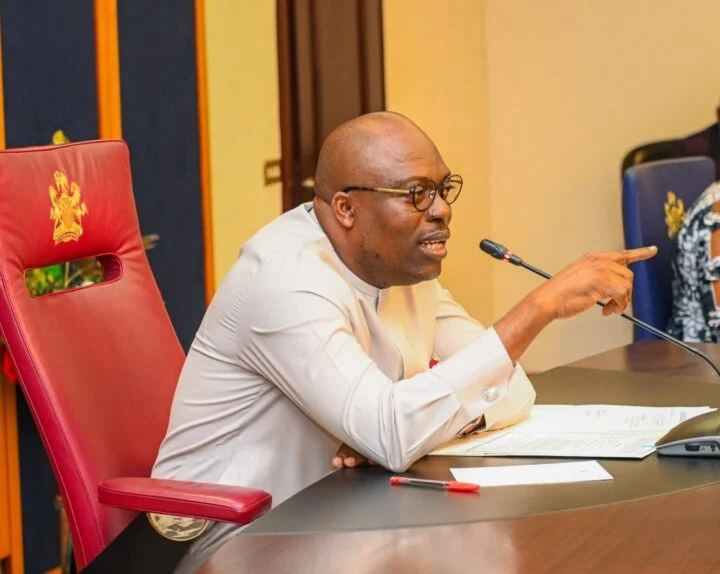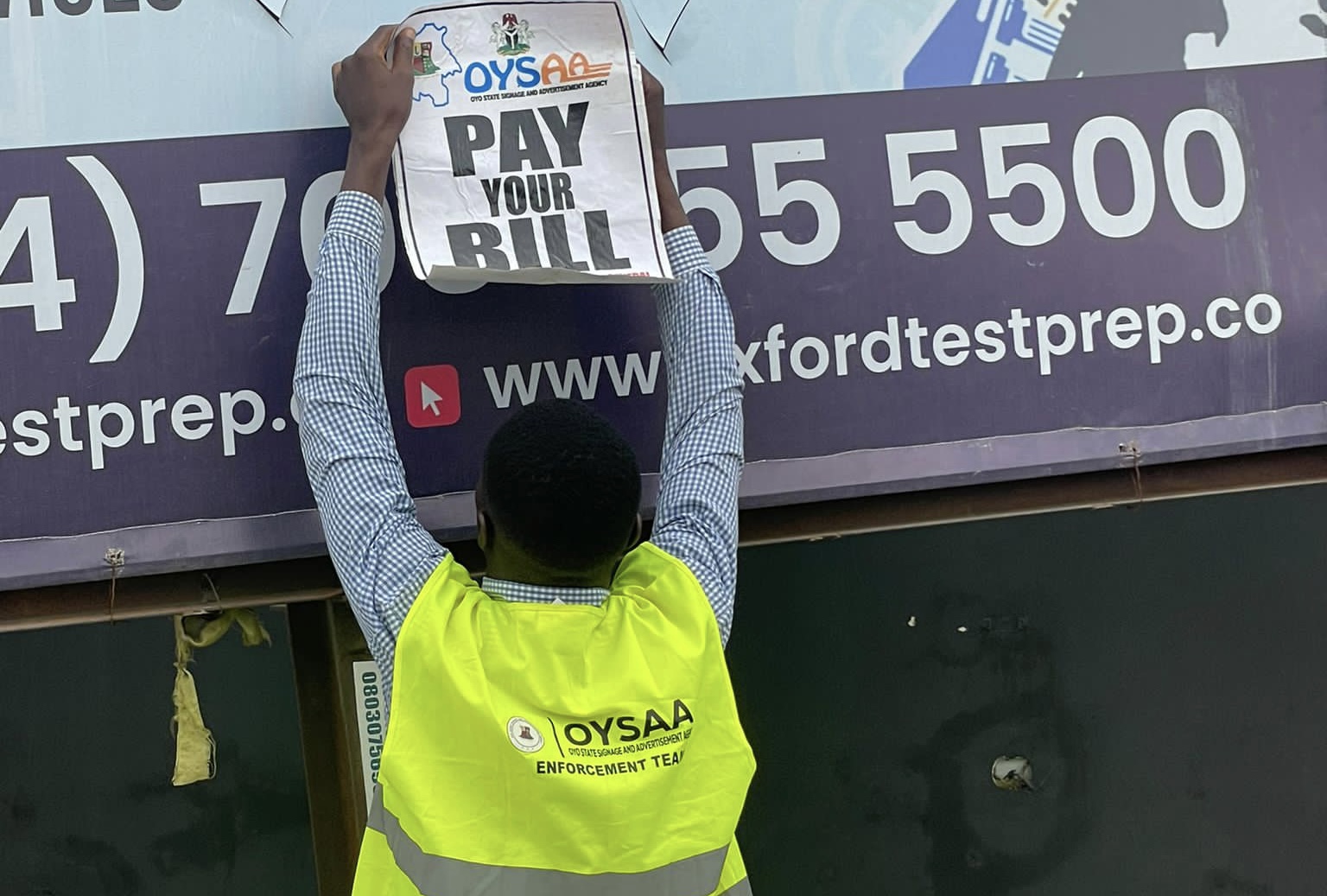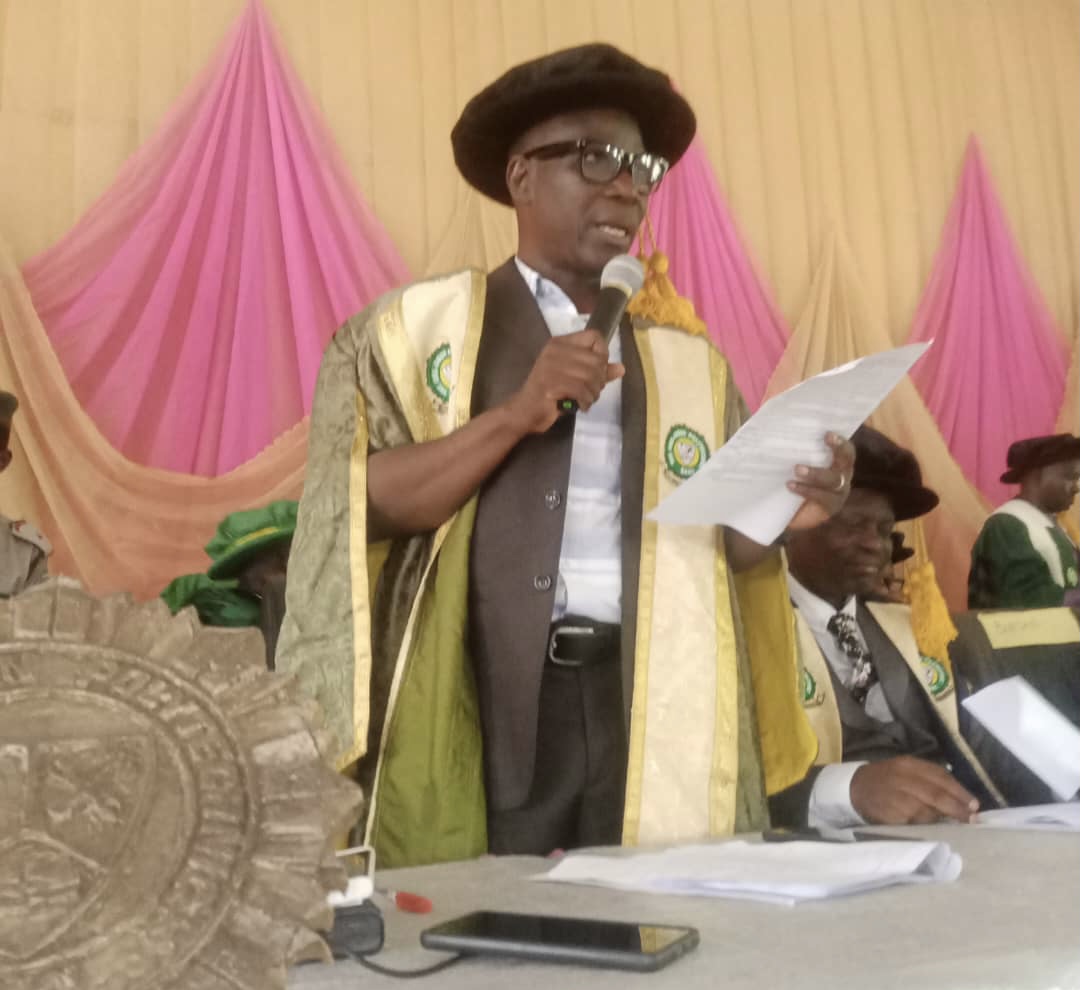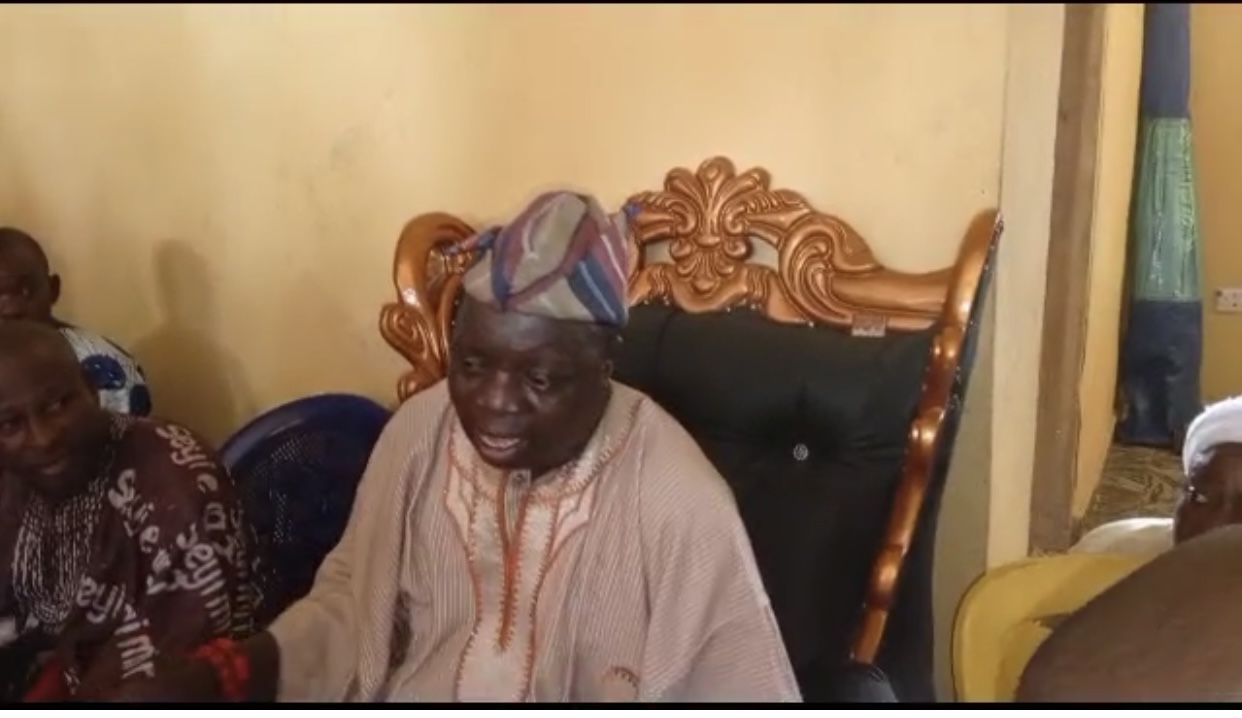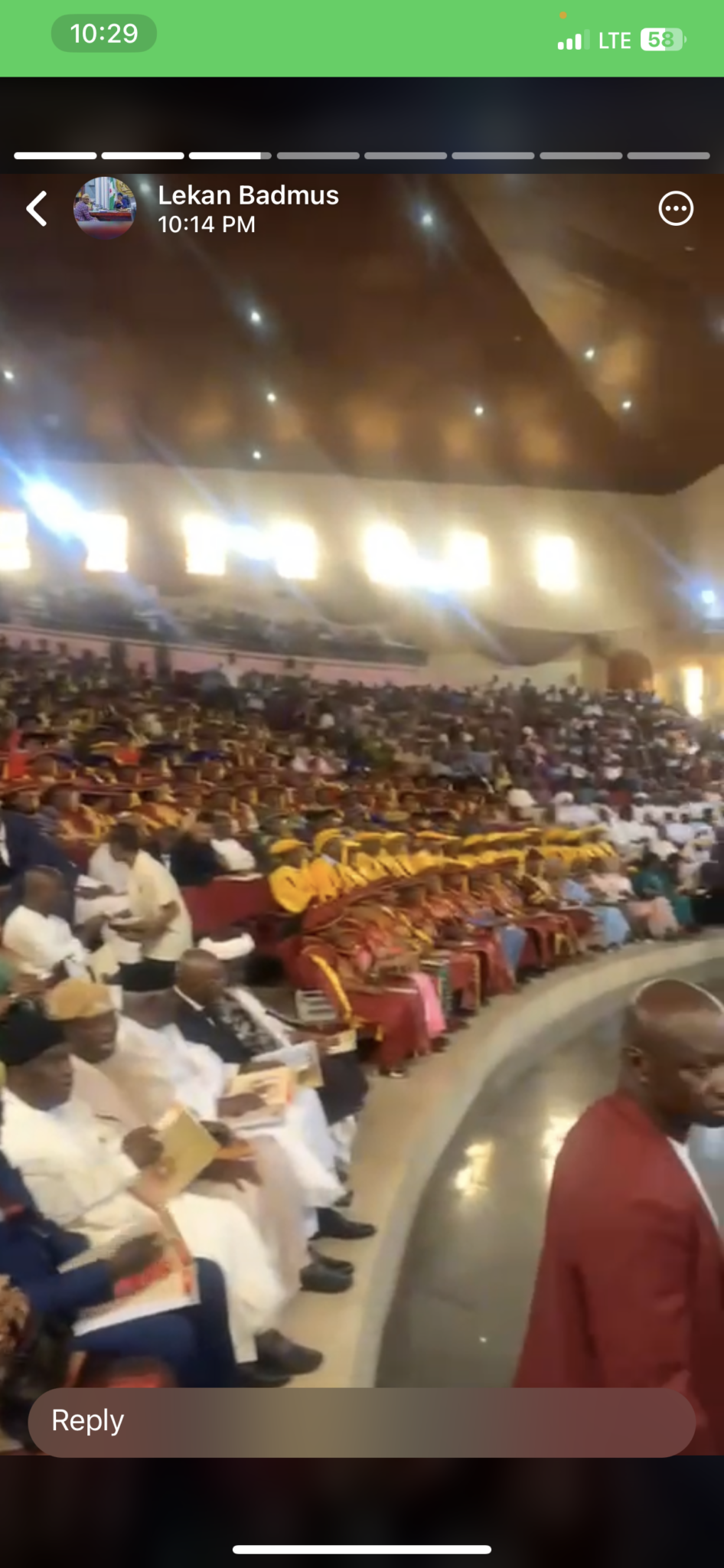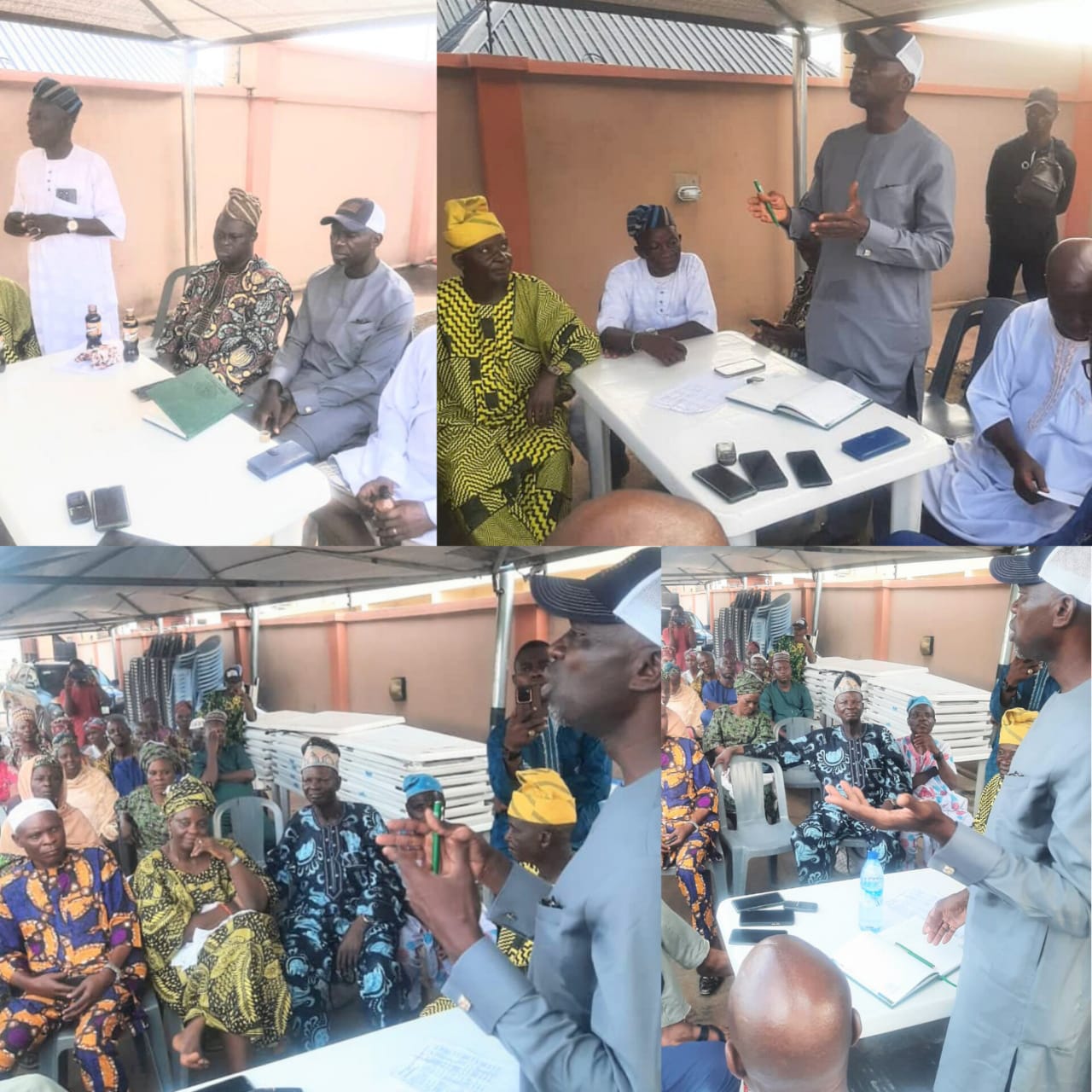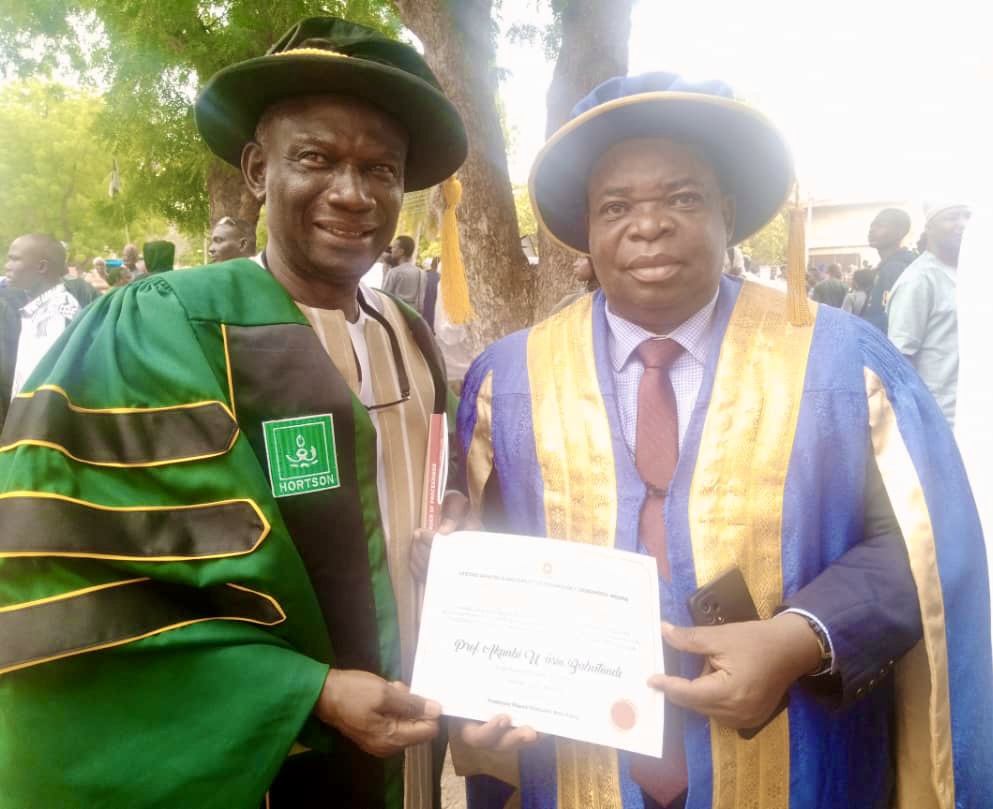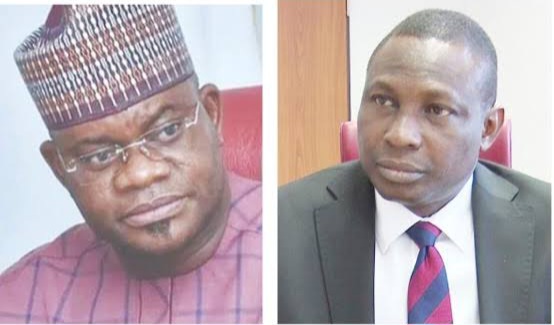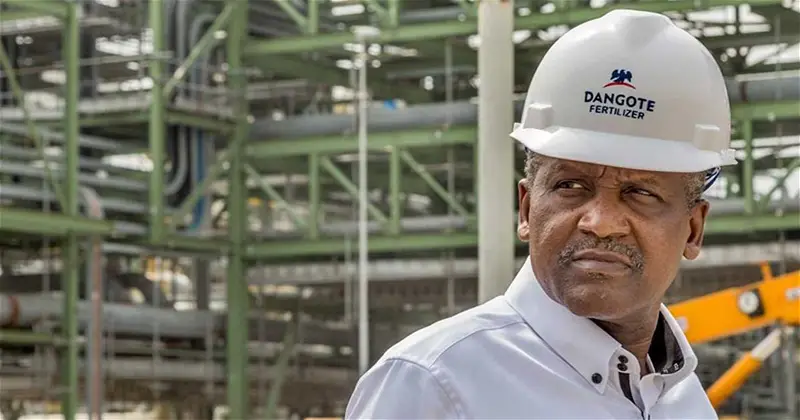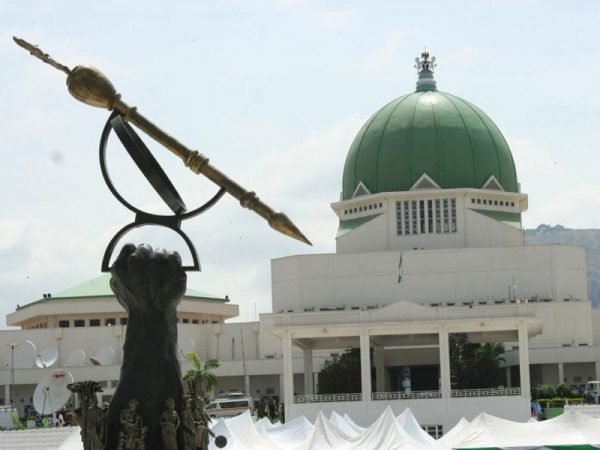Nigeria incoming lawmakers to get N49bn, others
The salaries and allowances for the incoming lawmakers may cost the country about N49bn, findings by The PUNCH have shown.
The figure covers the salaries and allowances of state and federal lawmakers.
The salaries and allowances are based on data collated from a document obtained from the website of the Revenue Mobilisation and Fiscal Allocation Commission.
However, the total allowances are higher than reported as the amount for a number of the allowances was not disclosed.
While N32.60bn will be spent at the national level, N16.32bn will be spent at the state level.
A breakdown shows that the annual basic salary of the President of the Senate is N2.48m each year (about N9.94m in four years) while that of the Deputy President is N2.31m yearly (about N9.24m in four years).
Out of 19 allowances assigned to the Senate President and his deputy, only five allowances were assigned a specific figure.
The disclosed allowances include constituency allowance (250 per cent of the basic annual salary), duty tour allowance (N50,000 per night), Estacode ($1,300 per night), Recess (10 per cent of the basic annual salary) and severance gratuity (300 per cent of the basic annual salary).
The allowance of the Senate President will gulp about N33.29m, which includes annual N6.21m for constituency allowance, annual N248,424.25 for recess, and N7.45m for severance gratuity, which is paid at the end of the tenure.
The allowance of the Deputy Senate President is expected to cost the nation about N30.94m, which includes an annual N5.77m for constituency allowance, an annual N230,916.70 for recess, and N6.93m for severance gratuity.
Other senators get N2.03m as basic annual salary (a total of N8.11m in four years) and a total of N72,137,440 each as allowances.
The salaries of the 107 senators will cost N867.3m, while their allowances will cost N7.72bn.
In the section for the salaries and allowances of other senators, out of the 20 allowances mentioned, only 15 were disclosed.
The Speaker of the House gets an annual salary of N2.48m (about N9.91m in four years), while the Deputy gets N2.29m (about N9.15m).
The allowance of the Speaker is about N18.33m which includes an annual N2.48m for constituency allowance, an annual N247,711 for recess, and N7.43m for severance gratuity.
The allowance of the deputy speaker was pegged at about N17.16m and this includes annual N 2.29m for constituency allowance, N 288,703 for recess, and N6.86m for severance gratuity.
Other members of the House of Representatives get N1.99m as basic annual salary-a total of N7.94m in four years or N58.76m each as allowances.
The salaries of the 358 House of Representatives members will cost N2.84bn while their allowances are estimated at N21.04bn.
The Speaker of a state assembly will be paid N1.64m (N6.56m in four years) as an annual basic salary while the deputy speaker gets N1.45m (N5.8m in four years).
In total, the 36 speakers will get about N59.04m as annual basic salary or N236.16m in four years while the deputies will get about N52.1m as annual basic salary or N208.40m in four years.
The allowance of the speaker will gulp about N5.58m (N22.30m in four years) which includes an annual N409,968 for constituency allowance, N163,987.50 for annual leave, and N3.28m severance gratuity.
The allowance of the deputy speaker will be paid about N4.92m (N19.67m in four years), and this includes N361,495 constituency allowance, N144,598 for annual leave, and N2.89m severance gratuity.
In total, the basic allowances for the 36 speakers and their deputies will cost the nation N1.51bn.
There are 784 members in the 36 state Houses of Assembly each of whom is entitled to N1.34m annual salary or N5.34m in four years and an allowance of N12.97m.
In total, the 784 members cost their states about N4.19bn in salary and N10.17bn in allowance.
‘N’Assembly’s N1.2tn budget’
Meanwhile, checks by The PUNCH indicated that the statutory budgets of the National Assembly and its affiliate bodies in the past eight have totalled over N1.084tn.
From 2016 to 2022, the annual budgets of the National Assembly cumulatively amount to about N915.5bn, while the parliament is currently implementing an N169bn budget for 2023, about N30bn more than its expenditure last year.
In 2016, the NASS got N125bn budget; in 2017, N125bn; 2018, N139.5bn; 2019, N125bn; 2020, N128bn; 2021, N134bn; 2022, N139bn while N169bn was allocated for the current fiscal year.
The political arm of the National Assembly has the Senate and the House of Representatives with 109 and 360 members, respectively, while the administrative/bureaucratic arm has the National Assembly Management headed by the Clerk to the National Assembly, and the National Assembly Service Commission.
The federal parliament has affiliate bodies including the National Assembly Service Commission, the National Assembly Institute of Legislative and Democratic Studies (the academic arm), Public Complaints Commission, and the National Assembly Budget and Research Office.
Details of National Assembly’s 2023 budget are as follows: Severance/inauguration of outgoing and incoming 9th and 10th Assembly (legislators and legislative aides) – N30.1bn; National Assembly Office, N30.4bn; Senate, N33.2bn; House of Representatives, N51.9bn; National Assembly Service Commission, N10.5bn; Legislatives Aides, N16.5bn; PAC – Senate, N118.9m and PAC – House of Representatives, N142.7m.
Others are the National Institute for Legislative and Democratic Studies, N7.4bn; Service Wide Vote, N671.3m; Office of Retired Clerks and Permanent Secretaries, N1,059,121,701; Appropriation Committee Department – Senate, N125m; Appropriation Committee Department – House, N165m; National Assembly Library building (ongoing), N4.2bn.
Also in the NASS budget is N11.3bn for General Services; hosting of Conference of Speakers of African Parliament, N127.5m; NASS Liabilities, N8.5bn; NASS E-Library, N255m; NASS Dashboard, N118.1m; Constitution Review, N850m; completion of NASS Library Complex (repeated), N7.5bn; completion of NILDS HQ, N2.5bn and construction of NASC building, N10bn.
Should the National Assembly and its affiliates maintain the same N169bn for the next three years – till 2027, it would constitute an additional N507bn burden on the taxpayers.
The actual allowances and salaries of the lawmakers had remained a controversial subject. A former lawmaker who represented Kaduna Central Senatorial District in the 8th Assembly, Senator Shehu Sani, had in 2018 disclosed that each member of the upper chamber got a basic salary of N700,000 and N13.5m as running cost monthly, a statement that attracted harsh criticisms from his colleagues.
A member of the House of Representatives representing Oriade/Obokun Federal Constituency of Osun State in the current 9th Assembly, Mr Wole Oke, had in an interview with The PUNCH in July 2019 disclosed that his basic monthly pay was N606,000 while his running costs, including allowances, totalled N8.5m.
Oke said Nigerians had been misinformed about the remuneration of the lawmakers, arguing that their counterparts in the United States are paid far more.
“In the American Congress, do you know how much their running cost is? It is $1m. Do you know how much their salary is? It is $14,000 per month. Yet, you pay me $2,000 as salary,” he said.
A former Minister of National Planning and Director-General of NILDS, Prof Abubakar Sulaiman, in an interview dismissed the notion that the National Assembly is one of the most expensive parliaments in the world.
According to him, members of the executive arm of the government have far more resources at their disposal than their counterparts in the legislative arm.
The Chairman of the House Committee on Media and Public Affairs, Benjamin Kalu, had repeatedly claimed that the National Assembly, which has been widely criticised as expensive to run, was underfunded.
Kalu partly said, “Nigerians have been made to believe that the worth of 0.8 per cent of the national budget that goes to one arm of government, less than one per cent, 0.8 per cent, is more than 99.02 per cent. This is what a group of people somewhere has succeeded in making Nigerians believe; that the cost of governance is not on any other arm of government but the National Assembly.
“But the question is: is that logical? Is it logical that an arm of government is 0.8 per cent and another arm is almost 95 per cent, and no attention is given to that arm of government? Nobody is questioning it.
“The truth remains that if the cost of governance must be reduced, it is on the executive. I am not mincing words. Look at the nominal rolls, you will see strange things happening there. So, if we really want to clean our house, it starts with the executive. I want to challenge Nigerians to start looking at the executive and stop looking in the wrong direction.”
While critics believe that the lawmakers are overpaid, Kalu argued that their pay was low when compared to the volume and critical nature of their work.
N14bn allowance.
The accommodation and furniture allowances for the incoming 10th National Assembly and state lawmakers may cost the country about N14.35bn.
The allowances are based on data collated from a document obtained from the website of the Revenue Mobilisation and Fiscal Allocation Commission.
As approved by RMAFC, lawmakers at the national level are entitled to 200 per cent of their basic annual salary as accommodation allowance and 300 per cent of their annual salary as furniture allowance.
Lawmakers at the state level are entitled to 50 per cent or 60 per cent of their annual basic salary as accommodation allowance and 150 per cent of their salary as furniture allowance.
However, while the accommodation allowance is paid yearly, the furniture allowance is paid once in four years.
A breakdown indicates that the two allowances will gulp N9.82bn at the national level and N4.53bn at the state level.
While the allowance for the Senate will cost a total of N1.98bn, the House of Representatives would gulp N7.85bn.
The allowances for the senate president and his deputy are higher than that of other senators.
Although the figure for the Senate President and the Deputy was not disclosed, using the approved percentage by RMAFC, the Senate President should get N4.96m yearly as accommodation allowance (N19.84m within four years) and N7.44m as furniture allowance.
The remaining 107 senators will get about N433.35m for accommodation each year (N1.3bn in four years) and N650.56m for furniture allowance.
The accommodation and furniture allowances for the speaker and his deputy for the House of Representatives were also not disclosed.
However, using the approved percentage of RMAFC, the speaker should get N4.96m yearly as accommodation (a total of N19.84m in four years) and N7.44m as furniture allowance.
The remaining 358 members of the House of Representatives get a total of N1.42bn yearly (a total of N5.69bn in four years) as accommodation allowance and N2.13bn as furniture allowance.
At the state level, the allowance costs for the speaker and the deputy speaker were not disclosed.
However, using the approved percentage, each speaker may be paid N0.98m as accommodation allowance each year, which is about N3.94m in four years, while the deputy speaker would get N0.87m yearly, which is about N3.48m in four years as accommodation allowance.
For furniture allowance, the speaker would get N2.46m each while the deputy speaker may be paid N2.18m.
In total, the 36 speakers will get about N141.84m as accommodation allowance and N88.56m as furniture allowance, while the deputy will get about N125.28m as accommodation allowance and N78.48m as furniture allowance.
Each of the 784 members across the states is entitled to N802,335 yearly as accommodation allowance, which is about N3.21m in four years, and N2.01m as furniture allowance.
In total, the 784 members would receive about N2.52bn as accommodation allowance and N1.58bn as furniture allowance.
But the Deputy Director of Socio-Economic Rights and Accountability Project, Kolawole Oluwadare, said it was not acceptable in the face of growing poverty and public debts.
Oluwadare noted, “The salaries and wages of members of the National Assembly have always been problematic. How much does a senator take home as his/her pay? We are all aware of the controversies it has caused in the past. We do not know.
“The recurrent expenditure of the National Assembly is very high and that also rises along with the various allocations to the National Assembly over the years and it is totally unacceptable and not sustainable in the face of growing poverty and public debts. It is not in the best interest of Nigeria.
“What one expects the incoming members to do is to cut their salaries and allowances and get down into the business of law-making.”
The Chairman of the Centre for Anti-corruption and Open Leadership, Debo Adeniran, strongly criticised the National Assembly and the executive arm for their reckless spending.
He argued that the present economic condition of Nigeria does not permit such extravagant lifestyles, insisting that it is not right for them to live in obscene affluence and opulence at the expense of the nation.
Adeniran went on to advise the incoming government to pay only sitting allowance to the lawmakers, which should be equivalent to what they would have earned if they were civil servants.
He suggested that this measure would not only reduce their spending but also demonstrate to the world that Nigeria is not wasteful and avaricious.
He said, ‘’What they are doing in the National Assembly and even the executive arm of the Federal Government is to demonstrate unwarranted reckless spending.
“There are scarce resources; it is unwarranted and unreasonable for them under the present economic condition that Nigeria finds itself to be living in obscene affluence and opulence.
“So, it is not right of any of them to do that and I want to advise the incoming government not only to slash but to only pay sitting allowance which would be moderate and the equivalent of what they deserve if they had been in civil service. So what they have done is to demonstrate to the world that we are simply wasteful and unnecessarily avaricious because what they are funding is a personal luxury.”



